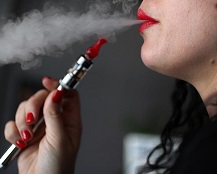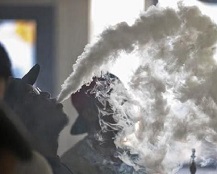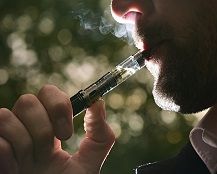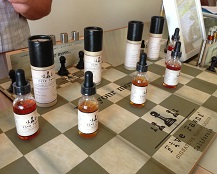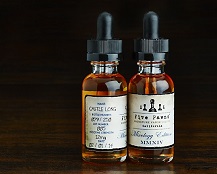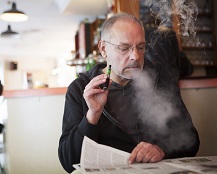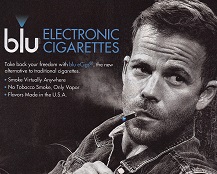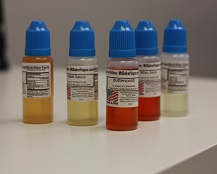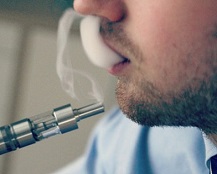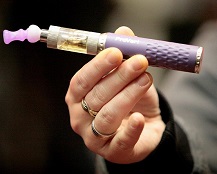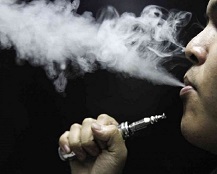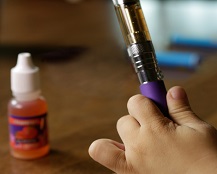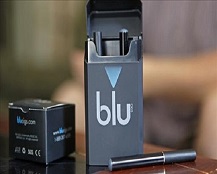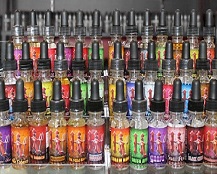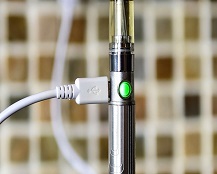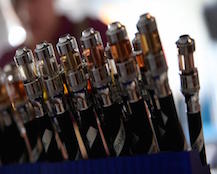Along with the usual repetition of myths and the hyping of battery explosions, there have been a couple of positive stories published in mainstream media outlets this week, and some lively debate about whether schools should allow students to vape if they’d otherwise be smoking. The Week in Vaping covers all these stories and more!
Another week, and more legislation, arguments about the risks and benefits of vaping, media stories about explosions and potential poisonings, new vaping gear and great blog posts from the community. So what’s been going on in the world of vaping?
Keeping up with all of the new studies, devices, blog posts and legislation in the world of vaping isn’t easy, so we’re happy to present the first of our weekly roundups of what’s been going on in the industry: the week in vaping.
After a great deal of controversy over the last time Five Pawns’ juices were tested, the company has now released new test results. The findings – which in the previous test showed up to 2,500 ppm (or 2,500 μg/ml) of acetyl propionyl (AP) in Absolute Pin – now show vastly lower levels of the chemical. So what’s going on?
The recent revelation that Five Pawns’ extremely expensive e-liquid may be riddled with diacetyl (DA) and acetyl propionyl (AP) brings an important issue to the light once again: the flavorings we inhale might not be good for us. So, what’s the deal with DA and AP in e-liquid? Which are the worst offenders based on the tests available? And can we even trust the results?
The Welsh government has announced that it will ban vaping in enclosed public places under a new public health law, igniting much debate about the pros and cons of such a decision. It's argued that vaping could pose a health risk to bystanders and may re-normalize smoking, but are these concerns justified?
A recent decision by the Village of Victor, NY to ban the opening of vape stores for 180 days is a sign that steps to combat vaping are really getting extreme. The moratorium has also been placed on tattoo parlors and pawn shops – other “undesirable” presences in a community – and is a reminder that despite the legality of e-cigarettes, many communities see their presence as an unwelcome one.
It was only a matter of time until this happened. A class action has been filed against Lorillard at the Orange County Superior Court for Blu eCigs’ “claims” that e-cigarettes are safer and healthier than tobacco cigarettes.
With harsh e-cig regulations in the pipeline in Washington state, Mt. Baker Vapor has opted to cull a large number of e-liquid flavors, in case each flavor will need to be individually certified for sale. With 190 flavors on the chopping block, it’s a firm reminder of the impact irrational legislation can have on vapers and the companies that supply us.
A UK couple has been banned from adopting a child because the husband was seen vaping, based on advice from the British Association for Adoption and Fostering that “users of e-cigarettes be considered smokers” until the completely ill-defined point at which the concerns about e-cigs have been settled.
In a disarmingly rational decision, lawmakers in North Dakota have passed a bill that both bans the sale and use of e-cigarettes by minors and classifies them as non-tobacco products. Instead, they passed another bill classifying e-cigarettes as “nicotine devices.”
Getting caught with an e-cigarette in some schools can get you suspended, tested for drugs and lead to “possession of drug paraphernalia” being marked on your school record. This means that for some students in states such as North Carolina, New Jersey, Washington and Connecticut, you’re better off being caught with cigarettes in school than e-cigarettes.
Health authorities in Mexico have closed down two vape stores in Mexico City, seizing almost 9,500 devices and citing the technical illegality of e-cigarettes in the country. For the two years prior to this seizure, only around 2,200 devices had been seized, and this may be an indication that authorities are planning on stepping up activity against vaping.
The California Department of Public Health's new "Protect Your Family from E-Cigarettes" campaign is a rag-tag collection of lies covering a lot of ground, like some prohibitionist Gish gallop replete with straw men, half truths and outright demonstrable falsehoods, masquerading as “the Facts You Need to Know.”
Pharmaceutical giant GlaxoSmithKline (GSK) is losing sales of its nicotine patches and gums because of the proliferation of e-cigarettes, according to the company’s chief executive. Andrew Witty commented, “Of course, it's definitely taken a bit of our market, no question at all," but said they won't release their own because e-cigs are "just too controversial."
Big tobacco giant Lorillard saw sales of blu eCigs fall by almost 40 percent in the third quarter of 2014, likely due to the fact that vapers have long-since realized that eGo-style devices or mods are vastly superior to the cigarette-sized weaklings of the vaping industry.
E-cigarettes are harmful, sold by the tobacco industry, contain toxic and cancer-causing chemicals, emit a “pollution cloud” that does “second-hand harm to others” and are just the "latest gimmick" from Big Tobacco, according to the new #CurbIt campaign from the San Francisco Tobacco Free Project.
After a string of court cases in Germany revolving around the possible classification of e-liquids as medicines, the Federal Administrative Court has decisively ruled that they don't meet the definition, and e-liquids can therefore continue being sold freely.
The newest thinly-veiled attempt to stoke fear of e-cigarettes is a curious one: e-cigarettes can infect your computer with malware.
New York City Councilman Costa Constantinides introduced a bill on Tuesday proposing a ban on all flavored e-cigarettes, flatly claiming, “These flavors are direct marketing to children.

